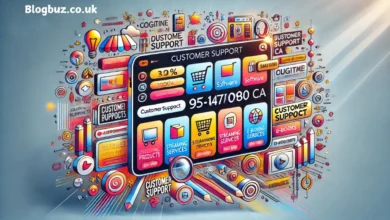Buy Yahoo Accounts

Many people search for shortcuts online, especially when they need scale fast bulk email addresses for marketing, multiple accounts for testing, or shared credentials for automation. Offers to buy Yahoo accounts or “sell Yahoo app passwords” can look attractive because they promise instant access and little hassle.
However, purchasing accounts is a high-risk shortcut that frequently leads to legal trouble, security breaches, and damaged reputations. This guide explains what sellers actually offer, the legal and technical dangers involved, how underground markets operate, and practical, legal alternatives you can use to achieve the same goals without putting yourself or your business at risk.
What Buy Yahoo Accounts Usually Means
When people talk about buying Yahoo accounts, they generally mean one of a few scenarios:
- Fresh bulk accounts created by fraudsters. Sellers use fake identities or automation to create many accounts and sell access to others. These accounts may be flagged later by Yahoo for suspicious creation patterns.
- Compromised accounts from breaches. These are credentials harvested from past data leaks or phishing campaigns, then packaged and sold on underground forums.
- Accounts with configured recovery access or app passwords. Some sellers claim accounts come with recovery phone numbers, recovery emails, or app-specific passwords pre-set.
- Temporary/shared access. Sellers sometimes provide temporary credentials or shared logins, only to reclaim or re-sell them later.
All of these carry significant uncertainty. Even “fresh” accounts may be created in ways that violate Yahoo’s terms or local laws; compromised accounts are already stolen property; and shared access provides no long-term control. Promises of verification, “clean” accounts, or refund guarantees are rarely credible.
Legal Issues & Provider Terms You Must Know
Most major email providers, including Yahoo, have terms of service that explicitly prohibit the sale, purchase, or transfer of accounts. Violating these terms can result in immediate account suspension, loss of data, and permanent bans. Beyond platform rules, there are often legal consequences:
- Unauthorized access laws. Many jurisdictions criminalize access to accounts that belong to others, even if you pay for the credentials.
- Dealing in stolen goods. Credentials obtained by hacking, phishing, or breach harvesting are considered stolen property in many places — buying them can be illegal.
- Facilitation of fraud. If accounts are used for phishing, spamming, or fraud, the buyer may be held legally responsible for facilitating those crimes.
Even if a seller claims accounts are legitimately created, buyers can still be liable if those accounts are later used for illicit activities or were created using false identities. Operating within terms of service and applicable law is essential for businesses — relying on purchased accounts undermines that foundation.
How Credential Markets and Scammers Operate
Credential markets and scam operations follow predictable patterns that increase risk for buyers:
- Data breach resales. Large-scale breaches produce massive lists of credentials that are traded and sold across underground forums.
- Phishing-as-a-service. Sophisticated phishing kits are sold to attackers who harvest credentials and resell them.
- Account-creation farms. Automation and fake identity documents are used to create many accounts at once; some of these farms sell accounts to advertisers or spammers.
- Escrow scams. Some sellers use fake escrow services to appear legitimate; once payment is made, buyers never receive valid accounts.
- Backdoor retention. Criminals may retain access even after selling credentials, enabling later takeovers, extortion, or illicit monitoring.
- Malicious bundles. Downloadable “account packs” can contain malware or scripts that compromise the buyer’s system.
Understanding these mechanisms helps explain why accounts sold cheaply are so unreliable and dangerous.
Technical Risks for Buyers and Organizations
Using bought accounts poses a range of technical risks that can cripple campaigns and operations:
- Backdoor & takeover risk. Sellers or original attackers may regain control at any time, lock buyers out, or use accounts for further attacks.
- Malware & spyware exposure. Account packages or setup scripts can install keyloggers or remote-access tools on the buyer’s machine.
- Credential overlap and privacy violations. Bought accounts may still be linked to real people or contain personal data — using them can expose you and others to privacy breaches.
- Blacklisting & deliverability failure. Email providers track abusive sending patterns. Using purchased accounts for bulk email often results in IP or domain blacklisting, ruining future deliverability.
- Data loss & service suspension. Sudden suspension by the provider can cause loss of stored emails, contacts, and configuration data.
- No reliable recovery. Anonymous sellers provide no support if accounts are blocked or change hands.
Businesses that rely on purchased credentials risk operational downtime, data loss, and a damaged technical stack.
Reputational and Legal Consequences
Short-term convenience from bought accounts can lead to long-term damage:
- Customer trust erosion. Clients and partners expect ethical conduct. Discovery of illicit account use damages brand reputation and can lead to lost business.
- Regulatory penalties. Using compromised accounts to process personal data can breach data protection laws (e.g., GDPR, CCPA), leading to heavy fines.
- Civil liability. Victims of privacy violations or fraud may sue businesses that used illicit accounts.
- Criminal exposure. Depending on the jurisdiction, using stolen credentials or knowingly facilitating fraud can result in criminal charges.
- Platform bans. Providers may blacklist domains, IP ranges, or entire businesses, which is particularly harmful for companies relying on online outreach.
Rebuilding reputation and recovering from legal trouble is costly and time-consuming compared to following legitimate practices from the start.
Ethical Problems: Who Gets Harmed?
Buying accounts harms multiple parties:
- Original account owners. If credentials are stolen, victims suffer privacy invasion and potential identity theft.
- Email recipients. Using illicit accounts to send spam or phishing emails puts recipients at risk of scams and malware.
- The ecosystem. Widespread abuse increases filtering aggressiveness, affecting legitimate senders’ deliverability.
- Your customers and stakeholders. They suffer from reputational fallout and potential data exposure.
Ethical business behavior is not optional; it’s a foundation for long-term trust and growth.
Safe Alternatives: Create Accounts the Right Way
If you need multiple accounts for testing, segmentation, or legitimate outreach, here are secure, legal options:
Create accounts yourself
If you need test or multiple personal accounts, create them under your control. Use unique recovery email/phone, strong passwords, and enable two-step verification (2SV) for each.
Use domain-based email for business
For professional outreach and transactional sending, buy a domain and set up email hosting (Google Workspace, Microsoft 365, Zoho Mail). Domain control gives full ownership, higher deliverability, and brand consistency.
Use aliases and sub-addressing
Many providers support aliasing or plus-addressing These provide segmentation without creating new accounts.
Use reputable ESPs for bulk sending
Use Mailchimp, SendGrid, Mailgun, or Amazon SES for newsletters and transactional emails. These services manage deliverability, authentication (SPF/DKIM/DMARC), and compliance.
Use OAuth and API tokens
Developers should integrate with OAuth or provider APIs using scoped tokens instead of storing passwords. Tokens are revocable and limit exposure.
Use sandbox and testing environments
For QA and automation testing, use sandbox or test services provided by platforms or create isolated test domains and accounts you control.
These alternatives provide the capabilities you may seek from purchased accounts without legal or security risk.
Best Practices for Managing Multiple Legit Accounts
If you legitimately manage many accounts, follow these practices to stay secure:
- Unique credentials for each account. Never reuse passwords; use a reputable password manager.
- Enable two-step verification. Apply 2SV across all accounts for an added security layer.
- Organize with labels and documentation. Keep a secure inventory tracking each account’s purpose and recovery details.
- Use role-based access & shared inbox tools. For teams, rely on shared inbox tools and role accounts rather than distributing personal account credentials.
- Revoke unused access. Audit accounts regularly and remove access that is no longer needed.
- Implement monitoring & alerts. Watch for unusual login locations or activity and respond quickly.
Good governance prevents the need for risky shortcuts and reduces the administrative burden of many accounts.
How to Recover Lost Yahoo Accounts Legally
If you’re tempted to buy accounts because you lost access to your own, follow Yahoo’s legitimate recovery steps:
- Use Yahoo’s recovery flow. Start with the “Forgot password” process and follow the guided steps.
- Check saved passwords. Look in your password manager, browser saved passwords, or corporate vault.
- Use recovery email/phone. Ensure your recovery options are active and accessible.
- Contact Yahoo support. Provide identity verification if required for account recovery.
- Create a new account and migrate data. If recovery fails, secure a new account and migrate contacts and subscriptions responsibly.
These methods protect your legal standing and avoid the hazards of buying credentials.
How to Spot Scammers Selling Accounts
If you encounter sellers, use these red flags to identify scams:
- Payment only via cryptocurrency or anonymous methods. Legit transactions typically have traceable, reputable channels.
- Promises of large volumes at very low prices. Too-good-to-be-true offers usually are.
- No verifiable identity or business information. Anonymous sellers are inherently risky.
- Pressure tactics (“limited stock,” “act now”). Scammers create urgency to bypass due diligence.
- Refusal to demonstrate lawful account provenance. Legitimate sellers would not exist in this space.
If you find illicit marketplaces, report them to platform administrators and, if necessary, law enforcement.
Final Takeaway
Buying Yahoo accounts may promise quick scale, but the hidden costs are steep: legal exposure, security breaches, blacklisting, reputational loss, and operational instability. The responsible path is to build a legitimate technical and organizational foundation: host email on your domain, use established ESPs for bulk messaging, adopt OAuth/API tokens for integrations, and maintain strict account governance.
Shortcuts that cut corners on legality and security rarely work out. Invest in the correct infrastructure and processes today to avoid expensive and damaging problems tomorrow. Your business, customers, and future depend on it.




